Lipolysis and Why You Can Gain Weight Eating Too Much Fat
There are a lot of conflicting views and advice on the web about what is a well formulated ketogenic diet, especially for weight loss. Lots of people promote Bullet Proof Coffee, Fat Bombs, eating sticks of butter, adding carbs or doing carb ups, etc. In this article I want to clear up the metabolic processes that are involved with a ketogenic diet, insulin resistance and how to leverage them to heal your body and as a result, lose weight.
“Hi Maria! I’ve spent the past few weeks really eating on the lower end of the fat side. Gave up ribeyes, NY Strips, eating fish for my first meal everyday (along with eggs however, so still getting fat there), lean beef like sirloin and lean ground beef at dinner, again having poached egg yolks because that is my dipping sauce.I’ve also really reduced my portions. I’m FINALLY dropping weight, feeling so much better digestively and energetically. My sleep is getting better, my outlook on life has improved. AND the amazing thing is not only am I not hungrier, I am less hungry than I was when eating larger portions and much more fat.Thank you both for always pushing back on the keto/carnivore space promoting limitless fat, calories, pounds of meat, etc.” – Julie
What Causes Insulin Resistant and Weight Gain?
The primary cause of weight gain is high dietary carbohydrates. This causes insulin to respond and store the excess fuel (blood glucose) that results. This is also the stem of most diseases. Check out this chart by Ivor Cummings.
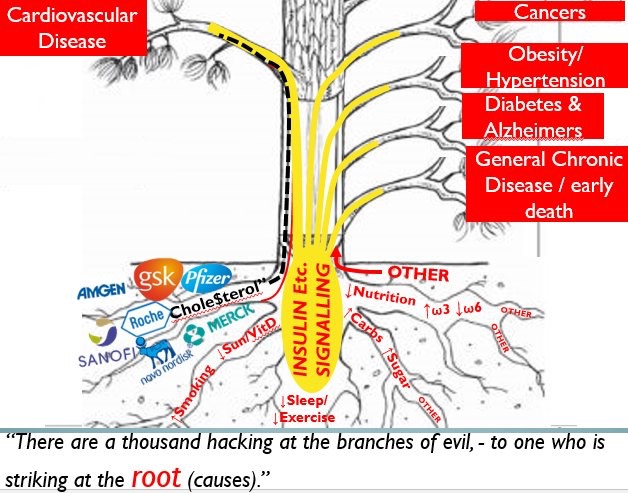
Source: Ivor Cummings presentation HERE.
As you can see, impaired insulin signaling is the stem of most diseases we face. There are several other factors that contribute (not enough sunlight, poor diet, lack of exercise, poor sleep, magnesium deficiency, stress, etc), but the impairment of insulin signaling (insulin resistance) and the resulting inflammation is the core cause.
So it is very important to understand how to reverse insulin resistance. Controlling our insulin levels (reducing carbohydrates) is just one part.
What is the cause of insulin resistance? Some people will say high glucose levels. Others will say being obese. While some say high insulin levels. High insulin is partly true but what really causes the break down of metabolic function is when our body fat (adipose tissue) gets very large and can’t hold anymore fat.
Adipose tissue is a very important signaling component in our bodies. Keeping our fat cells happy turns out to be very important to our metabolic function. The key is to reduce our fat cell size. You can have people with a lot of fat cells but the cells are small and they don’t have insulin issues. You can also have people with little body fat but the fat cells are large and they do have insulin issues and diabetes. This is why people that are 110 pounds can still get diabetes without gaining weight. The fat cells, when they get enlarged, no longer allow additional fat to be stored in them as they get inflamed. This is what starts the metabolic breakdown.
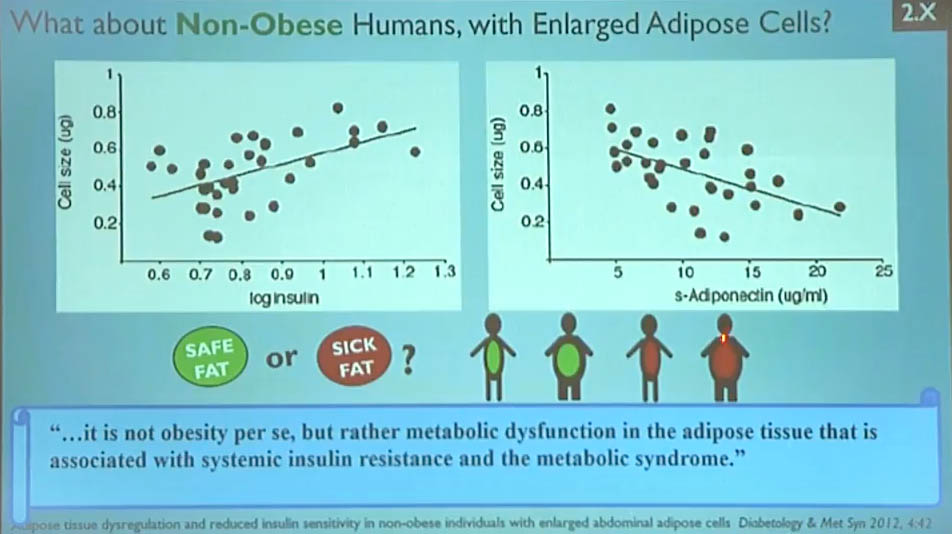
Eating low carb goes a long way to reverse metabolic issues by lowering insulin. But it is also very important to eat in an energy deficit in order to allow your body to use body fat for fuel in order to shrink the size of the fat cells. Shrinking of the fat cells (even in people that may not have a lot of weight to lose, but are insulin resistant) is needed to reverse the metabolic breakdown.
This isn’t the old Calories in Calories out argument. All calories are not equal. But our bodies are very good at managing energy flux within the bloodstream. So if excess energy is being consumed in the diet (BPC, Fat bombs, etc), it will stop sending energy into the blood from storage (glucose or fat). We want our bodies to use body fat for fuel in order to lose weight AND to shrink the size of the fat cells to reverse metabolic damage and diabetes. So keeping fat moderate during weight loss is important.
How do you Know that you are Insulin Resistance?
Most people (and doctors) would tell you that your fasting glucose measurement is the first to indicate that there is a problem with insulin resistance. This is where you test your blood glucose in a fasted state (8 hours of no food). They typically get concerned an may ask for a glucose tolerance test if fasting levels are over 100 (more typically over 125). The glucose tolerance test is where they give you a glucose solution (75 grams) and measure your blood glucose levels at 1 hour intervals after (for 2-3 hours typically). This measures how long it takes your body to store the glucose and lower blood sugar. But there are flaws in these measurements because they miss many people that are already diabetic but still pass these glucose tests. They basically only catch those people who have had their system already break down. Their pancreas has been working so hard for so many years to keep the blood glucose down that is starts to fail and fasting glucose levels begin to rise.
Years ago Dr. Kraft developed a test of insulin instead of glucose. This test is similar to the glucose tolerance test but instead of monitoring blood glucose, you monitor blood insulin levels. This diagram (source) shows the different response profiles of various stages of diabetes. The lowest blue one is normal. The other 3 are different stages of diabetes.
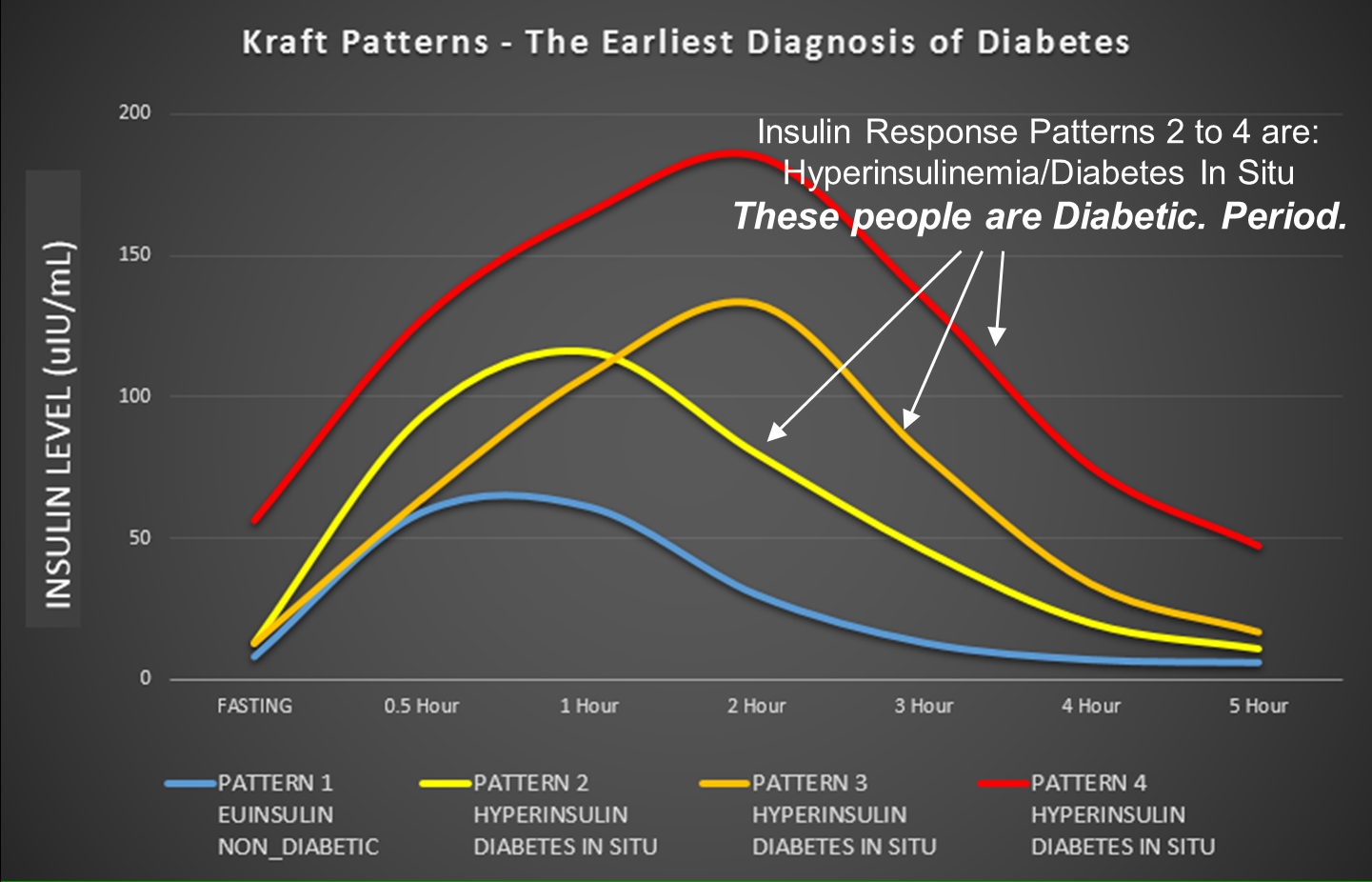
Kraft found that over 75% of the people he tested with this method had diabetes but passed the blood glucose tests. This makes the Kraft test one of the most important tests you can do to assess your health and metabolic function. It shows the insulin problems that lead to failure up to 10 years or more before you fail the glucose tests.
Remember, this failure in insulin signaling is the cause of the majority of major illnesses today. Cardiovascular disease, cancer, obesity and hypertension, diabetes and Alzheimer’s, inflammatory diseases. It is estimated that 50% of Americans are now diabetic (or pre-diabetic which is really the same thing). But with this Kraft test would indicate that upwards of 65% or more are actually diabetic.
What are the stages of a Ketogenic Lifestyle?
There are three distinct phases that occur with when a well formulated ketogenic diet is implemented.
1. Endogenous Ketone Production
The first phase is when you start showing elevated ketones in your bloodstream. This usually starts after 1-2 days of carbohydrate restriction (20g or less total carbs). You will see blood ketones go from 0.1 or trace to 0.2 or 0.3 or higher blood ketones. In this phase you may still struggle to have enough energy. Making sure you get electrolytes (salt, potassium and water) and adding extra fat (like fat bombs) can be helpful to fuel the body until your body can better utilize your own fat for fuel.
2. Becoming Fat Adapted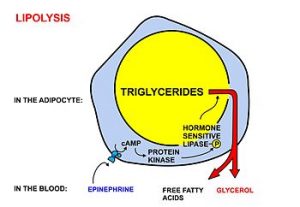
This can take about 4-6 weeks (or even more for some people). This phase is where the body starts to utilize body fat for fuel. This is called Lipolysis. Stored body fat (adipose tissue) is triglycerides. Each triglyceride molecule is three free fatty acid (FFA) molecules connected with one glycerol molecule. It taps stored body fat to generate FFA to fuel muscle and other lean tissues as well as some glycerol (that it turns to glucose) to fuel parts of the brain that still need glucose. At this point you want to ditch the extra fat (fat bombs, etc) so your body uses more body fat for fuel (fat loss and shrink fat cell size).
3. Fully Keto Adapted
Now you become a metabolic powerhouse. It can take anywhere form a two months to a few months (up to 6 or more in some cases). This is where there are some real changes at the cellular level. Mitochondria become more efficient, you can use FFA much better for fuel and much more. Insulin resistance is being reversed. Adipose tissue and fat cell size is reduced. This is where you really start feeling like a super hero with loads of energy, healing your body and other great benefits (moods, focus, memory, etc).
With these stages it becomes clear that in the first phase, you do need to add extra fat to the diet for fuel until the body adapts and can make it from your own fat cells. But once your body gets Fat Adapted, you can now use dietary fat or body fat equally. Using body fat for fuel (lipolysis) is what you want for weight loss (fat loss). So you don’t want to add lots of dietary fats if feel weight loss and healing is the goal or it will use those for fuel instead of body fat.
What does a Well Formulated Ketogenic Diet for Weight Loss Look Like?
It is pretty remarkable when you take a look at what this diet really looks like compared to a typical American diet. Now this average from THIS study may be a bit outdated (I’m guessing today the average calories is much higher). But in the study the typical American diet looks like this (source):
Calories
2,200
Fat (g)
85
Carbs (g)
275
Protein (g)
82
Now lets look at what a well formulated Ketogenic diet can look like for many people (when trying to lose weight).
Calories
1,175
Fat (g)
85
Carbs (g)
20
Protein (g)
82
Notice anything? All that really changed was the lower carbs (and thus calories). And the great thing is once you get your body out of the cycle of spiking blood sugar and insulin, it is actually quite easy to sustain this level of calories (much easier than high carb diets). The remaining energy needed each day comes from stored body fat. This shrinks the fat cells (lose weight) and reverses the metabolic damage. This is what a well formulated ketogenic diet looks like for weight loss.
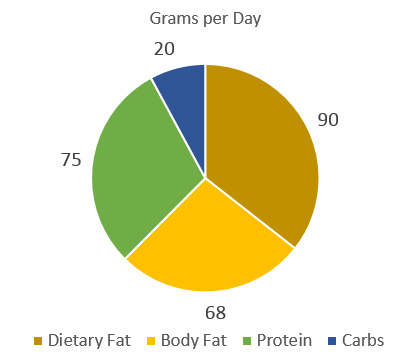
The only real change to these numbers for someone in maintenance would be higher fat. This will make up the 68 grams shown in this diagram (each person will be different in their metabolic rate).
CLICK HERE to use our macro calculator and get your own personal macros!
More Great Science Articles and Support!
For more great science article like this, tons of support including weekly webinars with Craig and Maria. If you want the ability to make your own meal plans check out our subscription site HERE.
Update:
I want to emphasis that this isn’t the old calories in calories out concept. It is all about the latest science that shows that when the fat cells get too full and inflamed the hormone signaling gets interrupted.
So when this signaling is messed up, you want to shrink the fat cells quickly to restore the hormone signaling. You will do this quicker by moderating fat intake in the beginning. Eating say 1,200 or 1,400 calories vs 5,000 will just get you where you want to be faster. Just some level of moderation instead of eating a pound of bacon and fat bombs all day. When your hormone signaling is messed up, you don’t get the signals of “I’m full”.
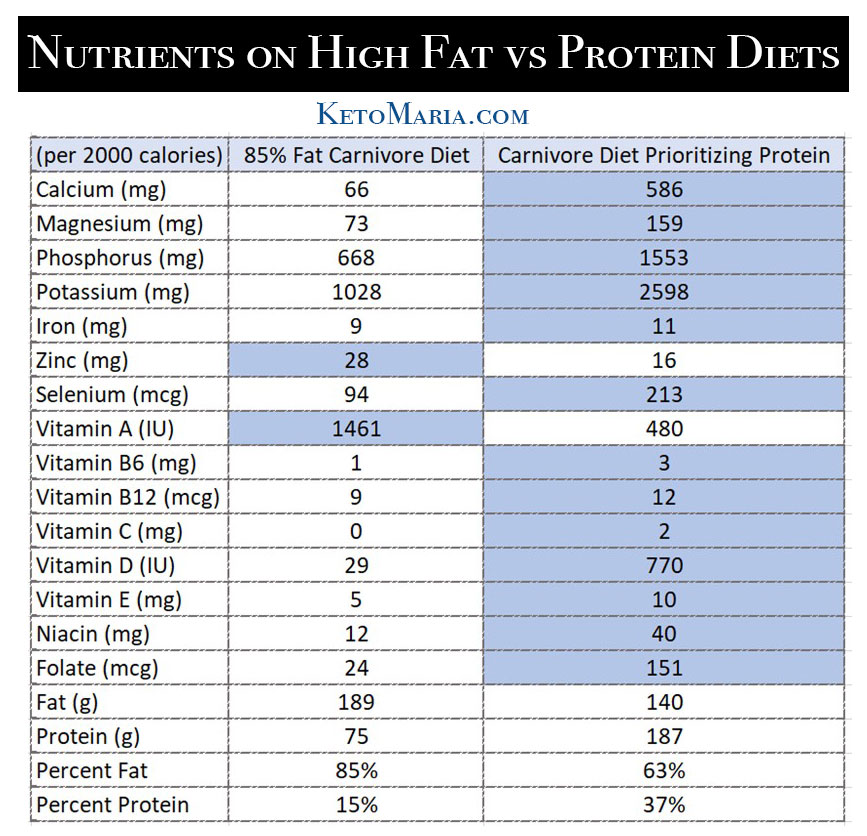 PROTEIN SPARING MODIFIED FASTING
PROTEIN SPARING MODIFIED FASTING
The idea behind a protein-sparing modified fast (PSMF) is to reduce carbs and fat as much as possible while still hitting your protein goal or even getting a bit more protein than your target. Instead of 0.8 times your lean mass for your protein goal, you want 1.0 times your lean mass when doing a PSMF. The additional protein makes your body use even more stored fat for fuel, helps break stalls or accelerate weight loss and healing, and helps keep you feeling full, while also giving you the added benefit of the high thermic effect of food with protein, which means that you effectively lose 25 percent of the calories you take. You also want to get some fat during this type of fast to ensure that you keep your hormones happy and that fat-soluble vitamins (A, D, E, and K) get absorbed. 30 to 50 grams of fat will be enough. But lower the fat this much forces the body to use more stored body fat for fuel, exactly what you want for weight loss.
PSMF is something we typically have clients do a couple days a week. Then regular keto eating the other days. For example, let’s say a woman weighs 170 pounds and has 38 percent body fat, which means she has 105 pounds of lean mass. Her macros would be 20 grams or less of carbs, 105 grams of protein, and 40 grams of fat. As you can see, this is like fasting while preserving lean mass because she is only getting about 860 calories, though only about 730 of those calories are useful because of the thermic effect of food. She will get enough protein to preserve important lean body mass, but she will have to use a lot of stored fat to fuel her body. This is what makes PSMF such a great tool for accelerating weight loss or breaking a stall.
Eight to ten years ago, Maria called this practice a “pure protein day.” Back then, we hadn’t heard of PSMF. We just knew the properties of the thermic effect of food and how our metabolisms worked, so we knew this could be helpful for people to lose weight faster. PSMF is becoming more popular and well-known and is a great tool for improving results.
We have just launched an all new Protein Sparing Modified Fast cookbook! This book is loaded with over 47 great recipes and 2 weeks of PSMF meal plans with full grocery lists!

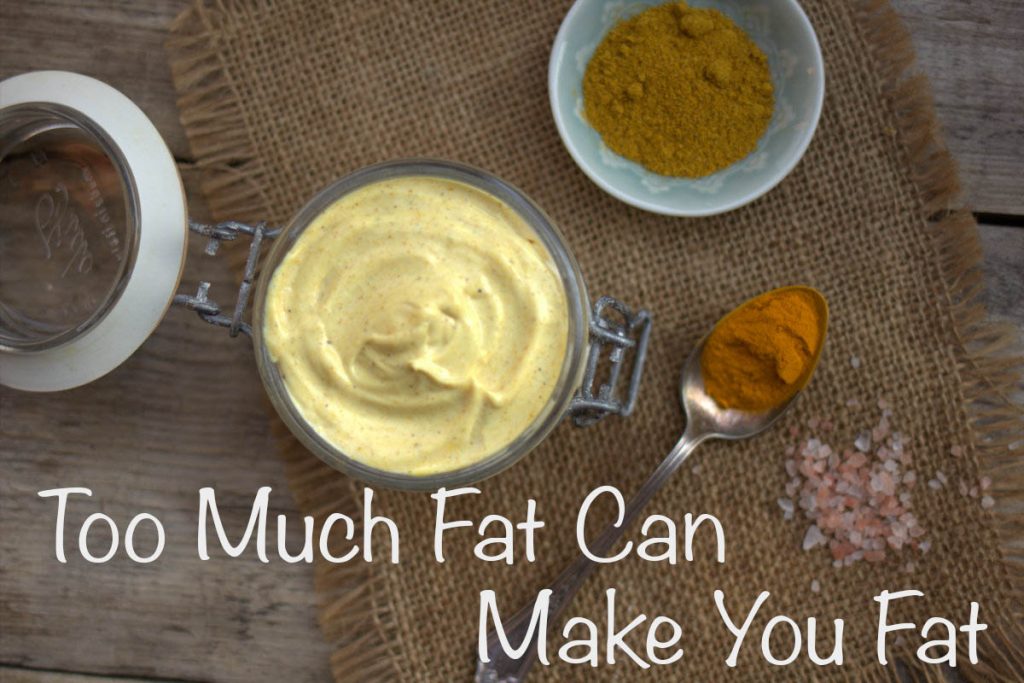
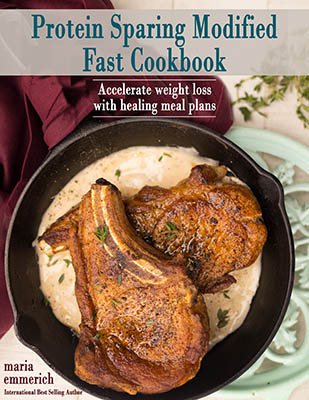






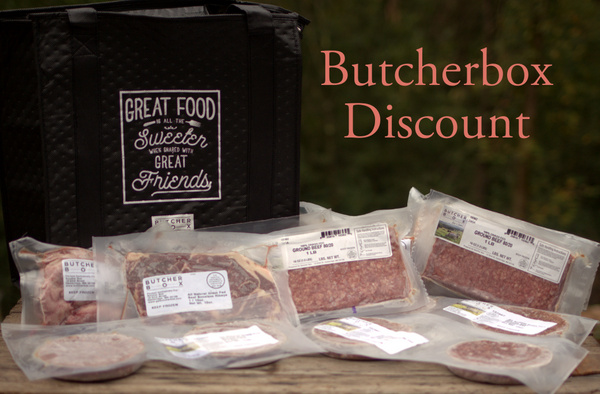


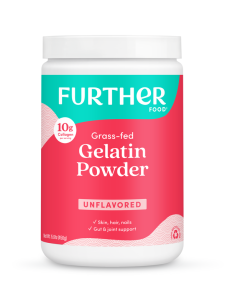

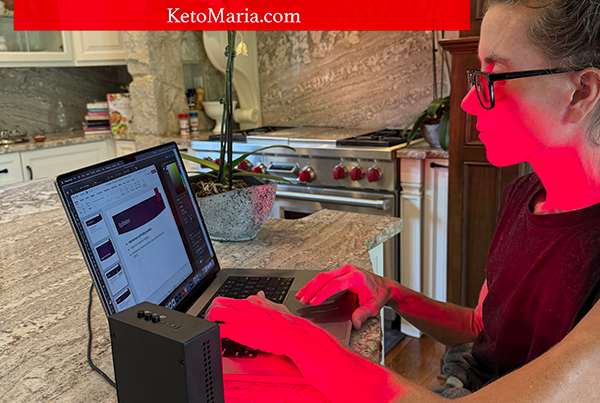
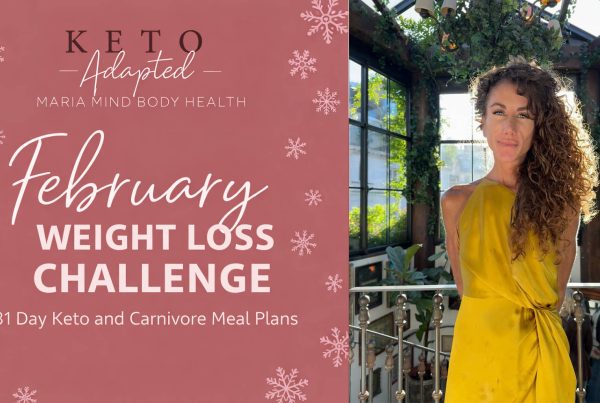
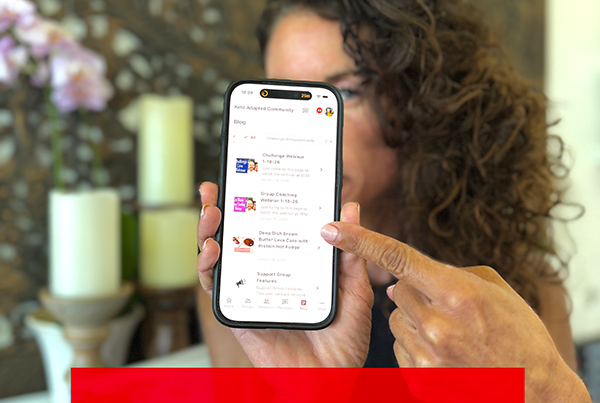
Awesome to hear this, Maria! So it’s not important at every meal to have more grams of fat than there are grams of protein for those fully fitted adapted and trying to lose weight?
Yes, correct. 🙂
I am literally always starving on Keto recently! I was diagnosed with a histamine intolerance in November and my doc put me on cyprodheptadine which just made me ravenous and exhausted. So, I started taking holy basil and mangosteen instead. I am not as hungry as I was before but I still feel starved. I still throw up a lot from the histamine intolerance, but even when I don’t throw up, I am starving and can’t ever seem to feel satiated. I drink about a gallon of water a day too. Do you have any clue as to what might be wrong?
Prescription drugs can definitely do that.
I stopped taking the cypro over a month ago and am still experiencing the hunger. I feel like my body is always starving and I don’t mean just my stomach, my muscles and bones constantly feel deprived. I can literally eat a half a pound of macadamia nuts and I still feel hungry, but then I am in pain and am throwing up the blink of an eye. It is like there is no middle ground between starvation and nausea.
Nuts can do that. Not stimulate a full feeling as much as a good piece of protein. But it may just take more time. It can take a few months for some clients to really start getting that full feeling.
I stopped eating nuts a few weeks ago but use unsweetened macadamia nut milk, unsweetened coconut hemp milk, and Nutpods in my coffee. I noticed a huge difference – I used to get bloated to the point of looking pregnant but I don’t have that problem anymore. I’ve been focusing more on nutritious, fatty meats. Oddly enough, I throw up thoroughly cooked meat more than medium-rare meat. I also tried oysters to get omega-3, zinc, and other nutrients since I have had to cut out nuts and seed and did extremely well with the oysters. I have a histamine intolerance and when I was doing research on it, I found Dr. Georgia Ede, who also has a histamine intolerance and she said that her diet is very high in meat/fat and that there is virtually no need for fiber. So, I significantly cut down my veggie consumption and focused more on eggs, fatty meat, and healthy sat fats
and my digestive system totally normalized. I hate to be graphic, but I had to use nearly 6 tbsp of Natural Calm magnesium every night to go to the bathroom so I think that also contributed to my weakness since it dehydrates you.
Have you checked your carnitine levels? Free/esterfied/total? When I hear people say they feel this kind of hunger, its usually due to lack of free L-carnitine with elevated esterfied carnitine.
I haven’t had them checked, but thank you for the suggestion! I have an L-carnitine supplement but haven’t been taking it religiously.
This is great and so easy to understand, thank you for clearing up the confusion. Are there some identifiable signals that we’ve reached lypolisis, or that we are fully Leto adapted? I know we can check for ketones to identify phase 1, but since the timelines for phases 2 and 3 seem to be so much more variable, how do we know when we’re there? Is it simply an energy uptick or a drastic change on the scale, or something more concrete and measurable?
I would go by your hunger. When you feel more full throughout the day, cravings reduce, etc.
Wow. This makes so much sense…. But no wonder I had a hard time losing weight in the beginning.
Thanks!
Thank you Maria, this is very helpful info. It’s easy for me to go overboard on the fat thinking I need to add a lot of extra fat to meals. Is there a general recommendation of fat, protein & carbs (i.e. 7g) at each meal for women following a keto way of eating?
Really depends on a few things. Shoot for 0.7 times your lean mass in grams of protein a day. 20g or less total carbs. Then fat as needed but most cases 110g or less for weight loss.
Is it necessary to have protein that high? 82 grams is a lot. I struggle to get to 60g.
That was just for the comparison. Protein should be 0.7 times your lean body mass (in pounds) for grams of protein a day. I explain this calculation in detail in my cleanse book. 🙂
I had a caliper test done and I was 30% bf at 170lbs. 117 lbs lean body mass. I’m now 167.2 . your calculator says I should eat 37.2 grams of protein, for rapid weight loss, but if I go by 117 lbm I should eat 82 grams of protein? huge difference totally confused now.
With that lean mass I would do 20g or less total carbs, shoot for about 70-80g of protein. You can look at our calculator as the max carbs, minimum protein and then that many fat grams or less depending on what stage of ketosis you are in.
Another question: I make a raw milk smoothie most days for breakfast because it’s easy and quick. It has 1/2 cup of raw milk (A2), 1/2 cup of water, 2 T of collagen hydrolysate beef gelatin, 1/4 of avocado, 1 egg yolk, 2-3 strawberries for a little sweetness or a tablespoon of blueberries, cinnamon. Is this too carby to get into ketosis? I am usually around 20g of carbs total for the day, I do subtract fiber to get that total. Any advice is appreciated greatly.
I calculate about 18g carbs for that drink. That is too much for me. The milk alone is 6g. I would do almond milk and flavor extract and sweetener instead of berries.
Am I understanding that fat cells are good if not too big? I’m hearing more about freezing of fat cells (and still hear of people getting liposuction) but both of these would reduce the number of fat cells one has and that doesn’t sound good if they were to ever gain fat again since the other fat cells would get so full?
The point is t that fat cells (or more of them) is good. In general, yes you need fat cells and they are good. When they get large and inflammed, that is when thing do down hill.
I just noticed that the keto calculator is much different than what is in this article. I entered my info into keto calculator and for greater weight loss it says more like 10g of carbs and the fat and protein were not equal like you are recommending in this article. In the calculator the fat is much higher, closer to 100g and the protein is much lower like 50g. I’m so confused now! Thanks for your help!
The above is just an example. The calculator I would treat as carbs, shoot for that number (less is ok), protein is minimum, fat is maximum.
Hi Maria,
This is JUST the information I have been looking for. I’ve been so much erroneous info that say Keto is all about the fat and every recipe at every meal is drenched with cheese, sour cream, butter and more fat. My body has not been handling it well at all. I need to lose 70 pounds and I am a T2 diabetic.
I would like to buy your cookbooks. Can you tell me which one (or perhaps both?) align to this way of Keto ; low carb, NOT high fat, moderate protein and a plus would be dairy-free or dairy-free adaptable? Thank you!
Thanks! My new cleanse book would be perfect! Dairy free and follows these guidelines. 🙂
http://amzn.to/2kK9W0K
Very interesting! I’m confused about the last two diagrams being different amounts of fat and protein. Also, I get about half the amount of protein you recommend. I don’t eat beef or pork. What does it mean for me not getting that amount of protein?
I think I may be getting too much dietary fat.
I’m 57 and weight loss is super slow. 1200 calories. 20 net carbs. Maybe around 50 grams of protein, if that. Often about 90 grams of fat. I’m 5’5″ and 156. I’d love to lose about 9-10 more lbs. Post menopausal. We eat really clean, almost all organic and fresh. Maybe need more balance of % and grams.
I’m “pre-diabetic” and want to end that!
I’m so grateful for all your study and information. I’ve never read this before.
Robin
I would try to get 10 or 20 grams more protein. And 20g total carbs. Otherwise omitting dairy and nuts for a couple weeks can get weight loss going. Also being postmenapausal, some supplements can be helpful too. 🙂
http://mariamindbodyhealth.com/supplement-plans/
Is that 20 TOTAL grams of carbs? Not net carbs? Wow! That’s tight and not sure how to do that if that’s so. It would be tough to elimate dairy altogether. I could try to cut to almost nothing if it would mean getting weight off again. I’ll do what I can to add more protein.
Thank you!!!
Our meal plans and the ones in our cookbooks are all 20g total or less. 🙂
And the latest “30 Day Ketogenic Cleanse” is also dairy and but free.
http://amzn.to/2kRso9J
I went over to your Keto Calculator. I do not understand that compared with what you’ve written above. It shows for accelerated weight loss about 116 g fat, 55 G protein and about 10 carbs. What? I’m confused.
That calculator can be read as fat, stay under, protein, minimum to get, carbs stay under. To do more detailed analysis required knowing you fat mass, etc. Hope that helps. 🙂
This was a great article. The explanation as to how slim people could be diabetic was new to me. Question: when I was doing strict keto and staying under 20 total carbs I felt guilty eating more broccoli (or other veg) because of the carbs. I just felt that this was wrong. If I eat all the salad and veggies I want in a day, I definitely go beyond 20g. I mean…it’s veggies! Do I really need to limit them to stay in ketosis or lose weight?
For weight loss, I would limit them. Veggies aren’t the worlds best food. Actually organ meats and herb and spices are more nutrient dense. And veggies come with lots of anti-nutrients. Check out this video.
https://www.youtube.com/watch?v=YdRBFiBWQZQ
So confusing for me I am a type 1 diabetic .For the last two years I have eaten no white flour, starch vegetables, sugar or artificial sweetener and I am gaining weight… I eat meat cheese fish vegetables nuts whole fat plain yogurt.. thinking I must be eating too much fat. Typeonegrit member and I see how well they all do with bs I can’t get there…
That is tough. That is a very complicated metabolic issue. But you are on the right track.
I am SO glad you’ve cleared this up!! I’m about 3 months or so into eating strictly Keto after doing it on/off last year. I finally am free of the carb cravings since I’ve gone all in. Feels amazing! I was wondering how I was supposed to eat only when hungry but still get in 1400 calories when the further along in this process I go, the less hungry I feel. Thank you for clearing that up.
I do have a question regarding the sodium intake. I’ve been loosely following your Keto cleanse cookbook (the recipes I’ve tried are AMAZING, BTW!) and you suggest getting about 6g of sodium per day. Is this just in the adaptING phase, and once I am fully fat-adaptED I won’t require as much? Or 6g everyday forevermore? If I’m eating less food, how do I consume 6g of sodium??!!!
Thanks! We typically have clients in the 1000-1400 range for calories. So you can reduce if hunger reduces.
That is really for anyone, even those not eating keto. Getting 8 grams sodium is less risk than getting 2g. 5-6g is a good goal. There is so much in processed foods, soda, etc that when you cut that out you get a lot less. One good way to get more is add a little to your water. Also there are sodium capsules like this.
http://amzn.to/2kVdmj8
The article title scared me at first. It what you’re saying is in order to lose weight on keto there must be a calorie deficit? For instance I average 1400-1500 cals a day with 108g fat, 87 protein, 20 carb. Those doing keto but not watching calories may not lose fat and weight? I am losing much more slowly than other keto-ers.
Yes, if you over eat fat you can stall weight loss. And we never believe in eating more fat to “hot a number” or percentage. Worry about getting carbs low enough and hit protein goal. Also, don’t believe in bullet proof coffee or fat bombs (really after first couple weeks of adaption they aren’t needed, especially if weight loss is the goal).
I hate to tell ya this, but there is no green line on that first chart. They’re red, yellow, ochre (brownish yellow), and blue.
Do I need to adjust the colors on my computer display?
Thank you for this information in short, easy-to-understand format. I do much better when I understand WHY I’m doing it this way.
Fixed it above. Thanks.
Thank you for this information! This has so helped my understanding of fat cells! Wow!
Thanks!
Good Morning Maria,
I’m recent Keto converter, have been following the diet “lifestyle” for 6 weeks. My blood ketones level have been consistently 0.7. Ive lost weight, seems to have halted, but still need to lose 55 more. This week I’m starting to intermittent fast, hoping that will get things moving again. Getting my fat/protein ratio always seem to be the hardest for me. Grass fed beef is very $$$, so I limit that to 2-3x a week. Any suggestions on how to keep my fat greater than my proteins?
I don’t think getting fat greater than protein is neccesarily a goal. Getting carbs low enough and hitting protein goal are the two things to shoot for.
For proteins there are lots of good options. Fish and seafood, poultry, pork.
Ok, so to just clarify! My goals should be to keep my TOTAL carbs below 20-30 total grams and shoot for no more than 75-80g of protein? …. and don’t obsess over calories and fat?
Yes. 🙂
is that for anyone?
Yes.
I too have ravenous hunger and have been keto over a year. I hear intermittent fasting should help but its hard to do when you are hungry. I take lowest dose of naturethroid and thyroid tests are consistently in the middle of range. How do you kill the hunger? My calories are in target as are the macros but not losing the 30 pounds I need to lose.
You are probably over medicating the thyroid. A slightly slower thyroid is a good thing and means longer life, etc. I would consider working with your doctor to eliminate the thyroid mess. That can cause hunger like this.
Good information.
Thanks!
How can you tell when you are fully fat adapted (in lipolysis) and should start reducing the amount of fat in your diet? I don’t want to be eating higher levels of fat for longer than I need to 😃
Without considering external factors (prescriptions, etc), for most people about 4-6 weeks. When you see hunger reduce, feel more full throughout the day, cravings reduce.
Hi! Thank you for this information. I drink one bpc after a 14 hr fast and will be eliminating it. I’ve been playing up and down with the same 2 lbs for 2 weeks. About the time I started bpc. NO coincidence. It’s gone as of today. My question is about ketones in urine. I’m a month in, and was showing ketones, but the last few days none. Am I past the point possibly to be showing them? I have to admit it is disheartening. My carbs are >20, and average protein is 65g and fat 90g. I’ve got 85 more lbs to lose. AND I’m impatient lol. Any suggestions would be most appreciated!
Urine ketones will go down as you get more adapted. More in that here:
http://mariamindbodyhealth.com/testing-for-ketones/
Way to go! 🙂
Maria – I’ve been keto for 2+ months now and need to lose 10 pounds. I CANNOT get that weight off, only been maintaing! Now… I’ve finally discovered why, or at least I think from reading this article why. I’ve been obsessing about getting so much fat! In fact from that article too much fat, which would also mean too many calories!
I’m really thankful for this article.
Be Well,
Leslie
Thanks! Also try dairy free for a couple weeks. 🙂
I have been on ketostix diet for 6 weeks but seldom hit pink on the ketostix. Does this mean I’m doing something wrong. I try to stick to 80 fm protein and 30 gms carb and 140 gm fat. I’m losing fat slowly but my energy levels aren’t great yet though I’m really active.
Those aren’t very accurate. More on that here:
http://mariamindbodyhealth.com/testing-for-ketones/
so i have hypothyroid and weigh 123kg with a height of 164 cm. As per you I should limit the net carbs to less than 20 eat minimum fat (50gm?) and 80 gm of protein. sorry am really struggling with weight loss and would like to fix this
Keep carbs below 20g, shoot for protein around 60-80g or so and use fat to keep satiated. Typically 100-110g or less fat once keto adapted.
Thank you so much.
Maria,
Very informative article, thank you. If you are in a fat adapted state and had a cholesterol panel drawn would that increase your cholesterol value? Thanks!
Cholesterol is not the enemy. Inflammation is.
Two things. First read this article and you will realize how little info you get from a cholesterol number about overall health. He made his total cholesterol go down by 60 point and his small dense LDL particle number (supposedly the real sign of cholesterol issues) go from 400 to below 80 in THREE days with only changing diet (and changing it the wrong way, going to 4000 calories form 700)!
http://cholesterolcode.com/dropping-my-cholesterol-at-record-speeds-part-i/
This just proves that cholesterol is just a transport mechanism for fuel and other products.
Also read this. If you really want to know your heard disease risk, look at CAC score. Calcium score is a cheap (usually $100) and easy test that measures the plaque buildup in your coronary arteries. The score given correlates to heart disease (and overall death risk) by orders of magnitude better that total cholesterol every does. Total cholesterol is only a couple percent correlation in the statin companies own tests. CAC score of 100 (vs. 0) correlates at 800% increase in death risk!!
http://www.thefatemperor.com/blog/2016/8/10/repeat-after-me-calcification-score-blows-away-risk-factors-always?rq=cac
So if you want to know your real risk, I would get a calcium score done.
Thank you Maria, very interesting article.
Thanks!
When I first started to dive into keto I read a lot of your website and ordered some of your books (have them ALL now) and a meal plan. I remember I was very disappointed to discover that in the meal plan I was supposed to eat somewhere between 1100 and 1600 calories a day. I thought: is it about calories after all? And wrote you an email about my disappointment. Reading your books I began to understand a bit more of this, but this article REALLY makes it clear. I like all your books and recepies Maria, but the info you provide is the real thrill to me. Follwing keto has not been easy and I have fallen of the wagon several times, but understanding why it is an all or nothing approach and how to do this well really helps with motivation and stick to my path.
Thanks!
Thank you very much Maria for all this information you give us !, You have an enchanted follower here in Catalunya! (Spain)
Thanks!
I’ve been on Keto for over 2 years now. I never held back on fat since that is what gives me energy and keeps my appetite down. I’ve also never gained any weight from eating extra fat (never lost any either). Overall I have lost about 40lbs over that time. I’ve noticed that my LDL levels have risen significantly recently and I want to cut down on saturated fats a bit. So the question remains, If I reduce my fat intake (and keep carbs low), will body fat be enough to maintain energy levels? I would like to lose more weight but want to maintain energy levels and I know that low(er) fat and low carb will affect that. I probably average about 40g of carbs per day.
Cholesterol is not the enemy, inflammation is. Two things. First read this article and you will realize how little info you get from a cholesterol number about overall health. He made his total cholesterol go down by 60 point and his small dense LDL particle number (supposedly the real sign of cholesterol issues) go from 400 to below 80 in THREE days with only changing diet (and changing it the wrong way, going to 4000 calories form 700)!
http://cholesterolcode.com/dropping-my-cholesterol-at-record-speeds-part-i/
This just proves that cholesterol is just a transport mechanism for fuel and other products.
Also read this. If you really want to know your heard disease risk, look at CAC score. Calcium score is a cheap (usually $100) and easy test that measures the plaque buildup in your coronary arteries. The score given correlates to heart disease (and overall death risk) by orders of magnitude better that total cholesterol every does. Total cholesterol is only a couple percent correlation in the statin companies own tests. CAC score of 100 (vs. 0) correlates at 800% increase in death risk!!
http://www.thefatemperor.com/blog/2016/8/10/repeat-after-me-calcification-score-blows-away-risk-factors-always?rq=cac
So I would get a calcium score done if you want to know your real risk.
Lastly, even the leanest athletes have 40,000 or more calories stored in their fat cells. So yes, you will have plenty of energy stored in adipose tissue.
Have known for a couple months that something was not right with my calculations thank you so much for laying this out now I know too much fat is stalling my weight loss. I’ve told my daughters that I knew something wasn’t right. At 180 grams of fat 90 protein and 20 grams of carbs I knew something wasn’t right it work well it first but I do want to lose more weight I will adjust according to your article thank you so much
Thanks! Yes, bring your fat to about 100g or so and you will see better results. 🙂
Hi Maria, great information and diagrams. Thank you! Depression runs in my family and within the past year I started taking Lexapro (10mg/day) and Wellbutrin (sp?). Will these meds interfere with or hinder my weight loss goals if I follow a ketogenic diet?
Any prescription medications can interfere, yes. Many have weight gain as a side effect.
Once becoming fully fat adapted, how long does it take (in general/on average) to get back to stage 3 again after “falling off the wagon?” I was fat adapted but made a bad decision that resulted in binging and tons of sugar for about a week! Now I’m bloated and miserable (gained 5 pounds – mostly right around the middle) and I’m wondering how long I might expect to be in stage 1 this time? If it matters, it took me about 3 months to get fully fat adapted the first time and I’d say I was in stage 3 for only about 2 weeks before I messed it up.
Depends on a lot of factors. How many days did you cheat. How many carbs, etc each day, how long have you been keto prior. If someone is keto for many months and then has one bad meal, they should be back into it in 1-2 days or so.
Hi Maria,
Thanks very much for your reaources. I’m new to your work and look forward to reading more. I have a question about exercise- what tweaks, if any, do you recommend that a very active person would make to this approach to ensure they are getting enough? Would you suggest sticking to 20g total carbs and increasing protein for instance or would I stick to the suggested amounts and trust my body to take what it needs from my stores?
Thank you
Yes, 20g or less carbs. Protein is a goal based on lean mass. Shoot for 0.7 to 0.8 times your lean body mass (in pounds) for grams of protein a day. Then fat as needed. But if weight loss is a goal, you want some coming from body fat. As an example, Luis of KetoGains who is a 165 pound bodybuilder (who is ripped) eats one meal a day with 1300-1900 calories and he is very lean (8 or 10 percent body fat) and gaining muscle mass.
I’ve been a Type I diabetic nearly 40 years & although I’ve always been in good control with A1C at 6.5 range, I’ve started to feel the effects of inflammation & insulin resistance the past 2 years or so…Skin rashes, high blood sugars, etc. I’m so thankful for your articles that explain WHY we need to eat this way & all the benefits that come with it. I’m still experiencing high blood sugars more than I’d like & don’t understand why. Carbs under 20, Fat=110, Protein=60, Calories=1400. This article helped me understand the 3 phases of ketogenics diet, so no more bulletproof coffee or fat bombs for me. In fact I recently gained back 4 pound without cheating. I will be taking out dairy & nuts. Any suggestions for the blood sugar issues?
First off, 6.5 isn’t where you want your A1c to be. 5.4 or less, ideal 5.0 or less is ideal. Checkout the Facebook grout type1grit. They are type 1s that have A1c below 5.0 in many cases.
Now those macros seem to be reasonable (depending on your lean mass). Are the carbs total carbs? If so that is a good goal. You might also want to omit dairy as that can cause increased blood sugars in some people that are sensitive.
Hi Maria. I love your books, website and all the information you share, so first, thank you so much!
I’ve been following a ketogenic diet for about a year, although not super strictly until January 1st of this year. I had lost about 20 pounds and then my weight loss stopped. Since following it very strictly since Jan 1, I have lost an additional approximate 10 pounds and was so excited that this seems to be healing me. I believe I’m keto-adapted according to your book; I use intermittent fasting daily and have most of the signs of being keto-adapted. However, I just had some blood work done and am confused; I’m hoping this is normal and temporary, just part of the process. I read in your book that your cholesterol levels can look “bad” when you’re still losing weight following a ketgonic diet. My HDL has gone down, my LDL has gone up by 51 points in about 7 months and my triglycerides up by 9 points in the same time period. However, my C Reactive Protein High Sensitive reading was WAY up to 7.7 (it was 1.6 in June 2016) and my fasting insulin also increased to 13 (it was 10 in June 2016). (I also have hypothyroidism and am not sure if that could be affecting these readings. My TSH has ran on the low side for the majority of the past couple of years while on medication (as low as 0.060 up to 0.270), but my most recent reading was 1.180. My free T-4 and free T-3 have been slowly rising but are still below the halfway mark of the range.) I’m just wondering if it’s also normal to have fasting insulin increase for some reason at this point in my ketogenic journey and if so, what causes this?
Thanks!
We tell all clients that if on medications, work with doctors to adjust as you adopt this lifestyle as many can reduce or eliminate over time. You might need less thyroid medication.
In general, CRP and triglycerides should be doing that with this lifestyle. Maybe try diary free. That can cause increased inflammation if overdoing it and are dairy sensitive.
Lastly, Cholesterol is not the enemy. Inflammation is.
Two things. First read this article and you will realize how little info you get from a cholesterol number about overall health. He made his total cholesterol go down by 60 point and his small dense LDL particle number (supposedly the real sign of cholesterol issues) go from 400 to below 80 in THREE days with only changing diet (and changing it the wrong way, going to 4000 calories form 700)!
http://cholesterolcode.com/dropping-my-cholesterol-at-record-speeds-part-i/
This just proves that cholesterol is just a transport mechanism for fuel and other products.
Also read this. If you really want to know your heard disease risk, look at CAC score. Calcium score is a cheap (usually $100) and easy test that measures the plaque buildup in your coronary arteries. The score given correlates to heart disease (and overall death risk) by orders of magnitude better that total cholesterol every does. Total cholesterol is only a couple percent correlation in the statin companies own tests. CAC score of 100 (vs. 0) correlates at 800% increase in death risk!!
http://www.thefatemperor.com/blog/2016/8/10/repeat-after-me-calcification-score-blows-away-risk-factors-always?rq=cac
So if you want to know your real risk, I would get a calcium score done.
How do exogenous ketones fit in? What stage of this process are they most useful, and do they help a person to become fat adapted faster?
For weight loss, they aren’t useful. You want your body using adipose tissue for fuel, not external fuels (ketones). They have therapeutic uses (cancer, Alzheimers, moods, memory, etc).
Hi there,
I would be so grateful if u can answer my question.
I’m in ketosis (daily ketone readings always between 0.5 and 3.0) but I have been consistent for 7 weeks and not fat adapted yet; I take salt, drink plenty of water but I struggle to exercise, I just feel very unfit and one short run leaves me depleted for days afterward.
I don’t have energy for everyday tasks and I’m struggling mentally.
I know some individuals take 12 weeks to adapt so I will just stick with it but my question is this: if my ketone levels are decent (mainly above 1.5mmol/l) is that all it will take; so if I have that level of blood ketones consistently for 12 weeks (I know everyone is different) will I definitely make the switch of fuelling system? Or is there something else at play? Some talk about quitting dairy, etc but my thinking is that if dairy were a problem my ketones would struggle to increase? I read so much about “after 2 weeks u will start to feel amazing” but it has been 7 weeks. I will keep at it if u think time is all I need to give it. Just don’t want to waste a few more weeks if I’m doing things wrong.
Thank you so much!
Reinette
As long as carbs are low enough (shoot for 20g or less total) and protein moderate, you will get into ketosis.
For energy during this time, make sure to get lots of water (shoot for 100 ounces or more) and more salt, potassiuma md magnesium. Shoot for 5-6g sodium (which is 12-14g table salt). Add some salt to water during day to help.
Brilliant article, thank you!
This explains why after a few months of pretty strict keto I first lost weight (water) and then gained again 3 kilos.
It always looked suspicious for me that you can eat fat with no limit…
Thank you!
Thanks for the info. I have been keto for 1 year and don’t have much weight to loose did it more for my hoshimoto’s. I have always wondered though about calorie intake and exercise. I work out 5-6 days a week with heart rate monitor and burn between 500-900 calories a day working out. What kind of caloric/macro intake do you recommend for someone who works out regularly? I am 5 ft 7in 139lbs. Would love to get down 5-7 lbs. thanks so much love your recipe books and blog!
Luis form KetoGains is a bodybuilder working out 2-3 hours a day and gaining huge muscle mass. He eats 1300-1900 calories a day in one meal per day. So for you I would shoot for 1000-1400 calories.
This has really clarified some things for me. I am in week 8. Have always eaten fairly clean, low fat, low carb, high protein. So I had trouble lowering my protein and upping my fat in the beginning of this. Now I am finding it hard to keep below 20 Net carbs. (I usually end up with about 25-30) But I see you said 20 TOTAL carbs. Can you give me a link to your cookbook that has recipes under that? I find I get most of my carbs by lunch and then I’m left with nothing by the evening. (I’m 54, post menopausal, 5’4, 184. Lost 12lbs so far)
My Cleanse book has meal plans that stay at 20g or less total carbs most days.
http://amzn.to/2mfiyj9
Great information. I have been following a low carb eating plan and lost 31 pounds in 11 weeks. I am 55. Work out at a gym 2-4 times each week. Feeling great. Off my anti-inflammatory medicine. I was 6 months without periods and since being on this plan I have had two cycles. Can burning adipose release estrogens into the bloodstream and cause menstural cycles to return? Just a curiosity that I cannot seem to find an answer for. Thank you. Keep up the great work. The results I have experienced make me a believer.
That is great! Way to go!
When eating keto you have more substrate for making hormones (fat, all hormones are made form cholesterol). So there can be a re-balancing of hormones to a more natural level for your body. 🙂
Maria, thanks for the info! One things that still confuses me: do you need to see ketone levels > .5 for six weeks to become fat adapted? I struggle to maintain that level? I had no energy at night so I assume I am not fat adapted. Any information would be greatly appreciated!
Blood ketones are just the difference of fuel generated and fuel used. We know bodybuilders that are very keto but never register above about 0.4 or 0.5 because they use all the ketones their body makes. 🙂
Marie,
Once you hit your goal how many calories do you eat? Does being in keto sis gove you a metabolic advantage? I know you are active and run an hour a day. How many calories do you average to maintain your weight?
You do require less calories. For example Luis from ketogains eats one meal a day of 1300-1900 calories and is gaining muscle.
Are the ratios of 20 grams of carbs and 75 to 80 grams of protien per day or per meal. And when you say “protien” are you talking about meat or other sources of protien such as whey or nuts?
That is per day. And all sources of protein are included.
Maria, I have a question. I was reading about banana flour for baking. Apparently it has high carbs but the carbs are not digestible. Do you think think this would be a reasonable option for a ketogenic diet?
I am not a fan. It is all fiber and too much fiber elongates the intestines, causes IBS and constipation, etc.
When using your calculator it gives me approx156g fat, 80ish grams protein and 14 grams ish for carbs, accelerated weight loss. Is this too high?
That calculator is just trying to estimate based on a lot of different factors. You can treat it as fat being a maximum, protein a goal and carbs a target (but in general below 20g a day is good). For weight loss I would do 20g or less carbs, hit 80g or so of protein on average and maybe 120g or less fat.